As a cook, you may have come across recipes that call for curing salts, but you might not have them on hand. Curing salts are used to preserve meats, prevent spoilage, and enhance flavor.
However, if you don’t have curing salts or prefer not to use them, there are alternatives that can help you achieve similar results.
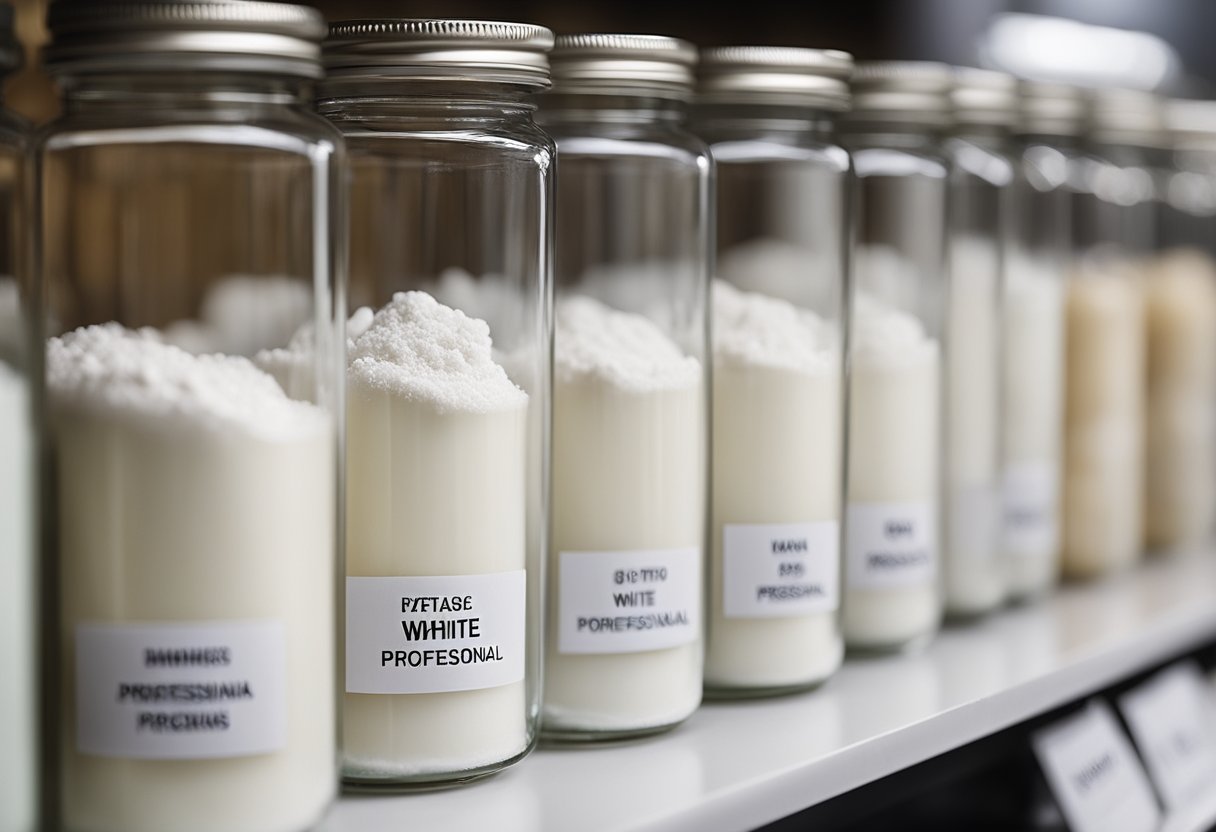
Understanding Curing Salts Curing salts are a type of salt that contains nitrites or nitrates. They are used to cure meats like ham, bacon, and sausage.
Nitrites and nitrates prevent the growth of bacteria that can cause food poisoning and spoilage. They also give meats their characteristic pink color and distinct flavor.
Why Substitute Curing Salts There are several reasons why you might want to substitute curing salts. For one, you might not have them on hand. Additionally, some people prefer not to use curing salts because of health concerns.
Curing salts contain nitrites and nitrates, which have been linked to cancer. While the evidence is not conclusive, some people prefer to avoid them altogether.
Key Takeaways
- Curing salts are used to preserve meats, prevent spoilage, and enhance flavor.
- Substitutes for curing salts can help achieve similar results.
- Some people prefer not to use curing salts due to health concerns.
Understanding Curing Salts
Curing salts are a type of salt used in the preservation of meats. They contain sodium nitrite or nitrates, which are essential in preventing the growth of bacteria that cause food spoilage.
Curing salts come in different forms, including pink curing salt, cure no. 1, and cure no. 2.
Pink curing salt, also known as Prague powder or InstaCure, is a combination of salt and sodium nitrite. It is used in small quantities to cure meats such as ham, bacon, and sausage.
Cure no. 1, on the other hand, is a mixture of salt, sodium nitrite, and sometimes red dye. It is used for short-term curing of meats that will be cooked, such as corned beef.
Cure no. 2 is a combination of salt, sodium nitrite, sodium nitrate, and sometimes red dye. It is used for long-term curing of meats that will be air-dried, such as salami.
Sodium nitrite and nitrates are the key components of curing salts. Sodium nitrite is used to prevent the growth of botulism bacteria, while nitrates are converted to nitrites and then to nitric oxide, which helps preserve red meat color and flavor.
However, excessive consumption of sodium nitrite and nitrates can be harmful to human health.
It is important to note that curing salts should not be used as a substitute for regular salt in recipes. They are specifically formulated for curing meats and should be used in the correct proportions.
It is also recommended to use curing salts sparingly and follow the instructions carefully to avoid any health risks.
In conclusion, curing salts are an important ingredient in the preservation of meats. They contain sodium nitrite or nitrates, which prevent the growth of bacteria that cause food spoilage.
However, excessive consumption of these ingredients can be harmful to human health. It is important to use curing salts sparingly and follow the instructions carefully to ensure safe and effective use.
Why Substitute Curing Salts
As a conscious eater, I always prefer to use natural and organic ingredients in my cooking. Curing salts, also known as Prague powder or pink salt, are a mixture of sodium nitrite and sodium chloride that are used to preserve and cure meat.
While they are effective in preventing bacteria growth and extending the shelf life of meat, they can also pose health risks when consumed in excess.
Excessive consumption of sodium nitrite has been linked to health problems such as cancer, heart disease, and diabetes. Additionally, some people may be sensitive to nitrites and experience allergic reactions. Therefore, substituting curing salts with natural alternatives can be a healthier option.
Using natural and organic substitutes for curing salts can also be a more nutritious option. Celery powder, for example, is a nitrate-free ingredient that can be used as a substitute for curing salt. It is also a good source of vitamins and minerals such as vitamin K, potassium, and magnesium.
Furthermore, natural substitutes can also help prevent the growth of harmful bacteria and toxins. Garlic, for example, has antibacterial properties that can help prevent the growth of bacteria such as E. coli and Salmonella.
Other natural substitutes such as rosemary, thyme, and oregano also have antimicrobial properties that can help prevent the growth of bacteria.
In addition to health benefits, using natural substitutes for curing salts can also be a more environmentally friendly option. Natural substitutes do not contain synthetic chemicals that can harm the environment and can be sustainably sourced.
Overall, substituting curing salts with natural alternatives can be a healthier, more nutritious, and environmentally friendly option.
Common Substitutes for Curing Salts
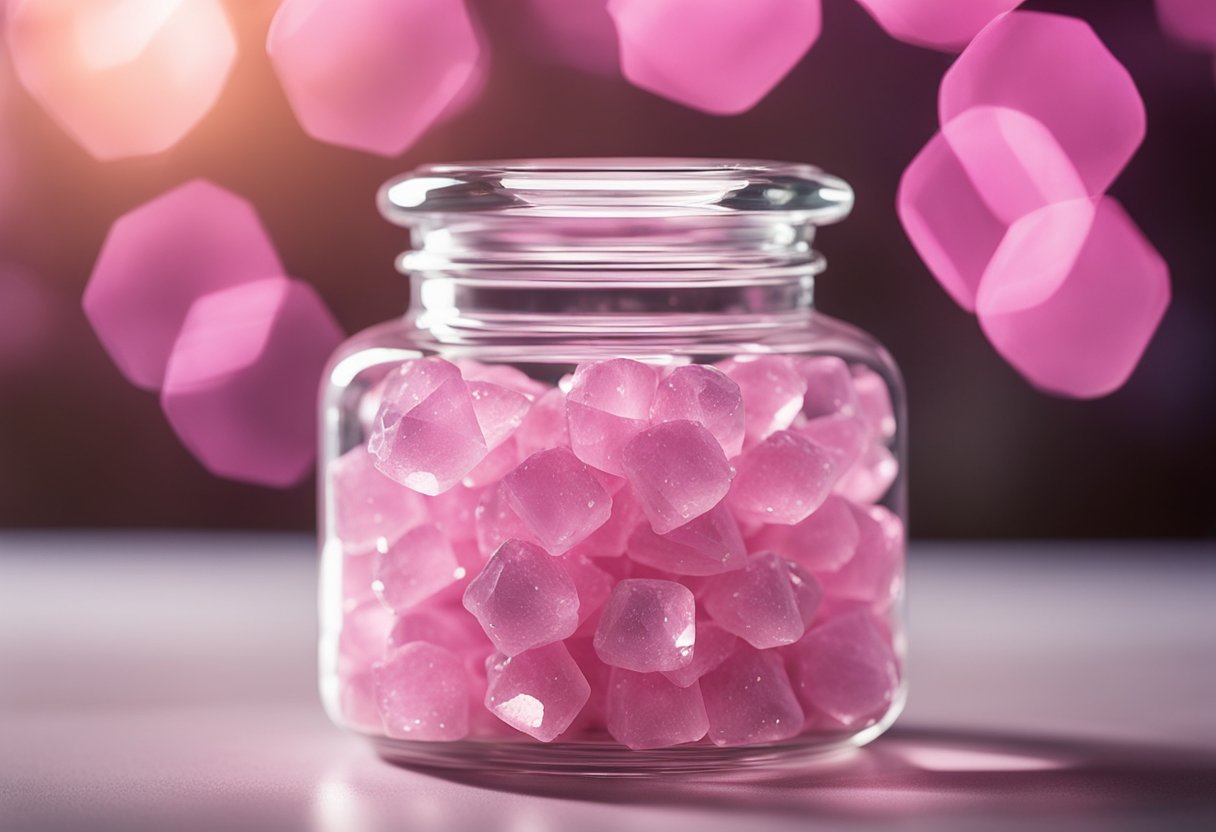
As a cook, one of the most important things to know is how to substitute ingredients. Curing salts are no exception. If you don’t have curing salts on hand or prefer to avoid them, you can use various substitutes. Here are some of the most common substitutes for curing salts:
Sea Salt
Sea salt is a popular substitute for curing salts. It is a natural salt that contains trace minerals and is less processed than table salt.
However, it does not contain nitrates or nitrites, which are essential for curing meat. Therefore, it is important to use other ingredients that contain nitrates or nitrites when using sea salt as a substitute.
Kosher Salt
Kosher salt is another popular substitute for curing salts. It is a coarse salt that is free of additives and is commonly used in cooking. However, like sea salt, it does not contain nitrates or nitrites.
Therefore, it is important to use other ingredients that contain nitrates or nitrites when using kosher salt as a substitute.
Celery Powder
Celery powder is a popular substitute for curing salts. It is made from ground celery seeds and contains naturally occurring nitrates. When used in curing, it breaks down into nitrites, which help preserve the meat.
However, it is important to note that celery powder does not contain as much nitrate as curing salts. Therefore, you may need to use more celery powder than curing salts to achieve the same results.
Vinegar
Vinegar is another popular substitute for curing salts. It is a natural acid that helps preserve meat. When used in curing, it can help prevent the growth of bacteria and other harmful microorganisms.
However, it is important to note that vinegar does not contain nitrates or nitrites. Therefore, you may need to use other ingredients that contain nitrates or nitrites when using vinegar as a substitute.
Sugar
Sugar is a popular substitute for curing salts. It is a natural sweetener that can help balance the salty flavor of cured meat. When used in curing, it can also help preserve the meat.
However, it is important to note that sugar does not contain nitrates or nitrites. Therefore, you may need to use other ingredients that contain nitrates or nitrites when using sugar as a substitute.
Himalayan Salt
Himalayan salt is a popular substitute for curing salts. It is a natural salt that is mined from the Himalayan Mountains. It contains trace minerals and is less processed than table salt. However, like sea salt and kosher salt, it does not contain nitrates or nitrites.
Therefore, it is important to use other ingredients that contain nitrates or nitrites when using Himalayan salt as a substitute.
In summary, there are many substitutes for curing salts, including sea salt, kosher salt, celery powder, vinegar, sugar, and Himalayan salt.
However, it is important to note that these substitutes do not contain nitrates or nitrites, which are essential for curing meat. Therefore, you may need to use other ingredients that contain nitrates or nitrites when using these substitutes.
Specific Uses of Substitutes
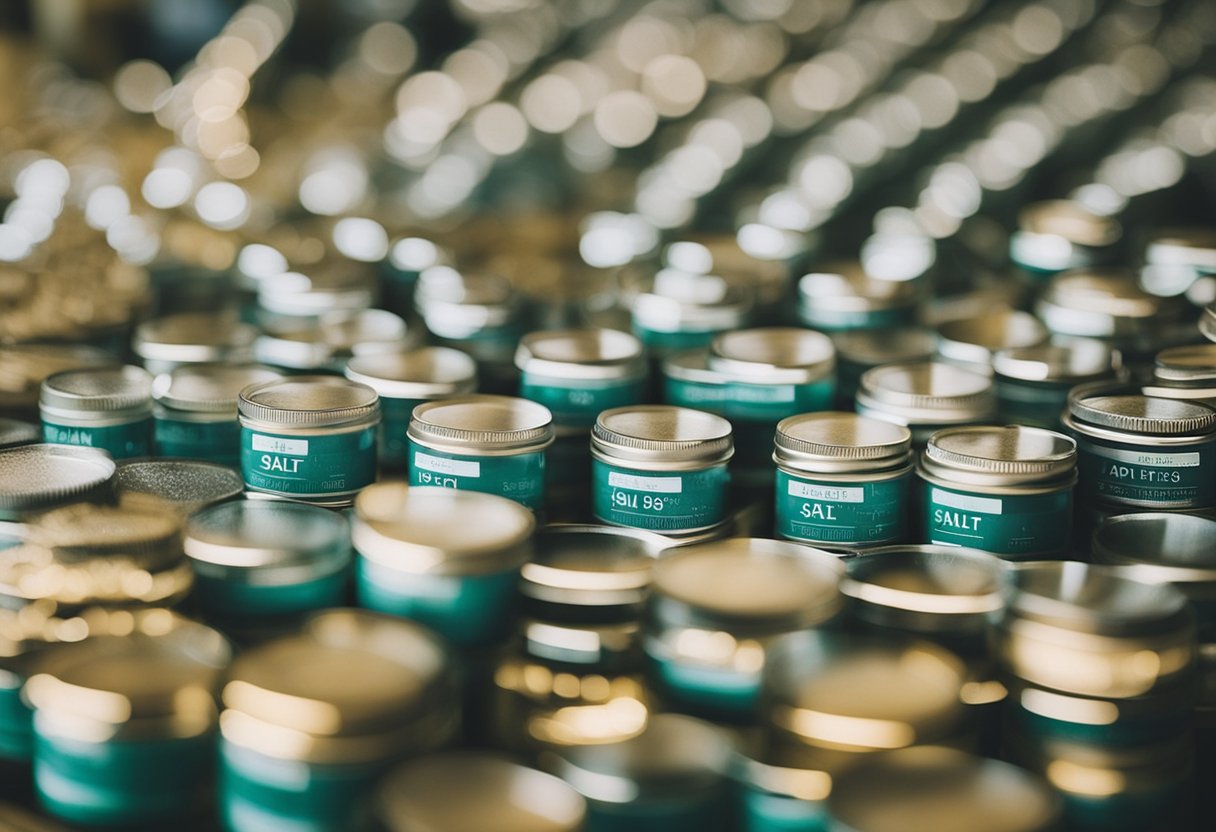
As I mentioned earlier, curing salt substitutes can be used in place of curing salt in a variety of ways. Here are some specific uses of substitutes that you might find useful:
Cooking
If you’re looking to add a salty flavor to your dish, non-iodized sea salt is a great substitute for curing salt. It’s easy to find, has a nice salty texture, and helps preserve food for longer.
You can also use kosher salt as a substitute, but keep in mind that it’s less salty than non-iodized sea salt, so you may need to use more of it.
Preserve and Preserve Food
Curing salt substitutes can be used to preserve food in a variety of ways. For example, you can use celery powder as a substitute for curing salt when making pickles or sauerkraut.
The natural nitrates in celery powder will help preserve the vegetables and give them a tangy flavor.
Meat Curing
Curing salt substitutes can also be used to cure meat. Saltpeter, which is also known as potassium nitrate, is a popular substitute for curing salt when making ham or corned beef. It not only gives the cured meat a nice pink color, but it also helps preserve it.
Smoking
If you’re smoking meat, you can use a mixture of non-iodized sea salt and raw sugar as a substitute for curing salt. The sugar will help balance out the saltiness of the sea salt and give the meat a nice sweet flavor.
Canning
When canning vegetables, you can use non-iodized sea salt as a substitute for curing salt. It will help preserve the vegetables and give them a nice salty flavor.
Meat Processing
If you’re processing meat, you can use a mixture of non-iodized sea salt, raw sugar, and vinegar as a substitute for curing salt. The vinegar will help tenderize the meat, while the sugar and salt will help preserve it.
Beef Jerky
When making beef jerky, you can use a mixture of non-iodized sea salt, soy sauce, and Worcestershire sauce as a substitute for curing salt. The soy sauce and Worcestershire sauce will give the jerky a nice savory flavor, while the salt will help preserve it.
Overall, there are many different substitutes for curing salt that can be used in a variety of ways. By experimenting with different substitutes, you can find the perfect one for your needs.
Considerations When Choosing Substitutes
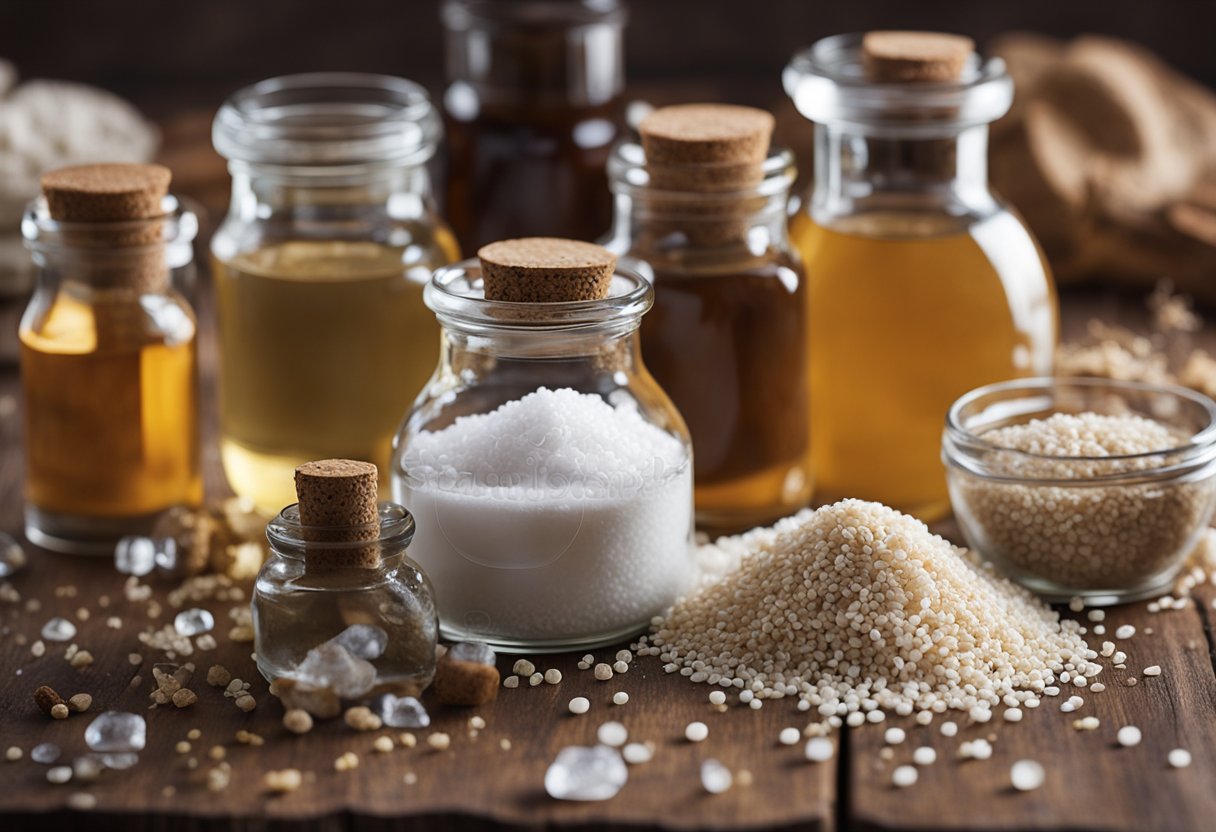
When choosing substitutes for curing salts, there are several factors to consider. These factors include time, shelf life, color, trace minerals, additives, preservatives, pressure, and heat.
One important factor to consider is time. Some substitutes may take longer to cure meat than others, so it is important to plan accordingly. For example, using a dry rub with salt and sugar may take longer to cure meat than using a curing salt substitute.
Another factor to consider is shelf life. Some substitutes may have a shorter shelf life than others, so it is important to store them properly and use them before they expire. For example, celery powder has a shorter shelf life than Himalayan pink salt.
Color is also an important consideration. Some substitutes may affect the color of the meat, so it is important to choose a substitute that will not alter the desired color.
For example, using beet powder as a substitute may result in a red color, while using celery powder may result in a brown color.
Trace minerals are another consideration. Some substitutes may provide additional trace minerals, while others may not. For example, Himalayan pink salt contains trace minerals such as iron and magnesium, while kosher salt does not.
Additives and preservatives are also important to consider. Some substitutes may contain additives or preservatives, while others may not. It is important to choose a substitute that fits your dietary needs and preferences.
Pressure and heat can also affect the curing process. Some substitutes may require pressure or heat to properly cure the meat, while others may not.
For example, using a dry rub may not require any pressure or heat, while using a vacuum sealer may require both.
Overall, when choosing a substitute for curing salts, it is important to consider these factors and choose a substitute that fits your needs and preferences.
Historical Context of Curing Salts and Their Substitutes
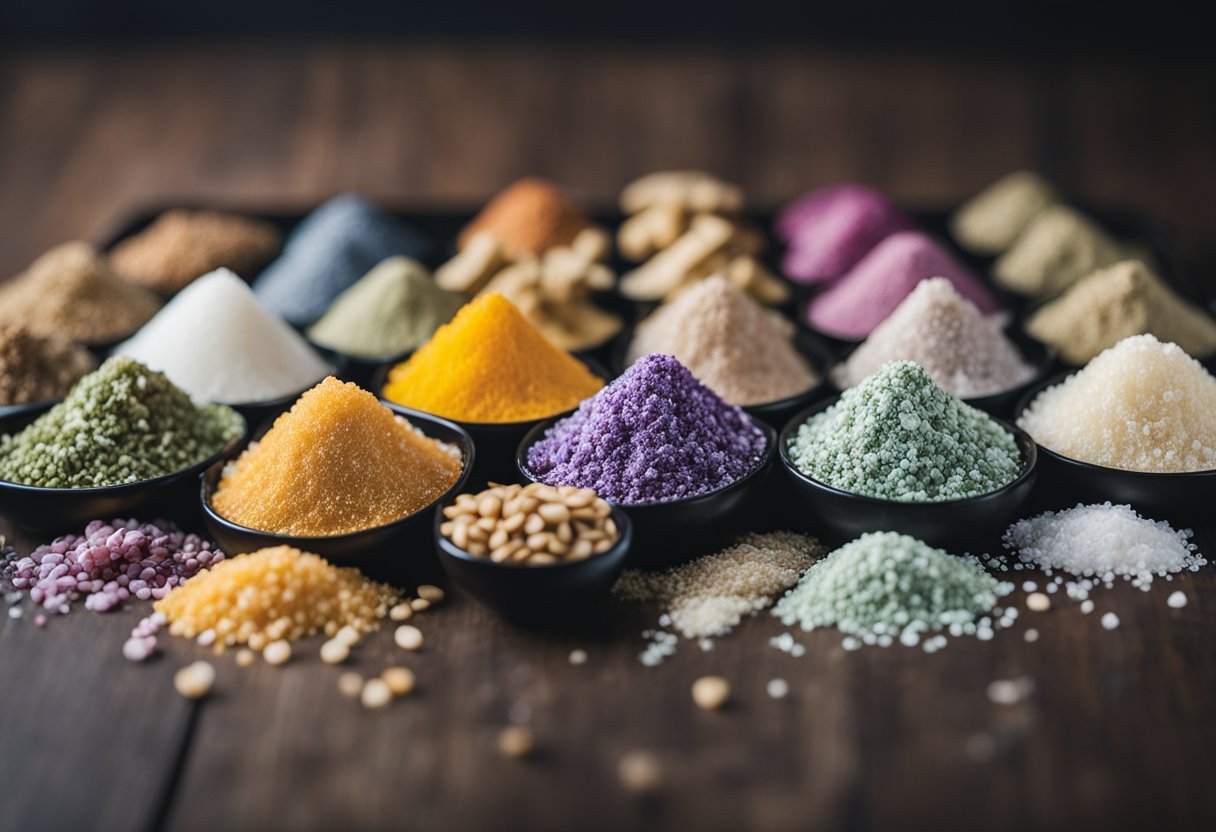
As a food preservation method, curing has been used for centuries. The Middle Ages saw the use of saltpeter, also known as potassium nitrate, as a way to preserve meat.
Saltpeter is still used today as a curing salt substitute and is known for its ability to preserve meat efficiently. It can also be used as a meat tenderizer and a thickening agent in many foods, such as stews or canned foods.
Curing salts, such as Cure No. 1 and Cure No. 2, are used to preserve meat and enhance its flavor. Cure No. 1, also known as Prague Powder #1, contains 6.25% sodium nitrite and 93.75% table salt. It is recommended for meats that require short cures and will be cooked and eaten relatively quickly.
Cure No. 2, on the other hand, contains 6.25% sodium nitrite, 4% sodium nitrate, and 89.75% table salt. It is recommended for meats that require longer cures and will be air-dried, such as salami.
However, some people prefer to avoid curing salts due to health concerns. Curing salt substitutes, such as non-iodized sea salt, kosher salt, Himalayan salt, and vinegar, are becoming increasingly popular.
Celery powder, which is a nitrate-free ingredient, is also a great substitute for curing salt.
In conclusion, the use of curing salts and their substitutes has a long history in food preservation. While curing salts are still widely used today, curing salt substitutes are gaining popularity due to health concerns.
It is important to choose a curing method that suits your needs and preferences while also ensuring the safety and quality of the meat.
Where to Find Substitutes
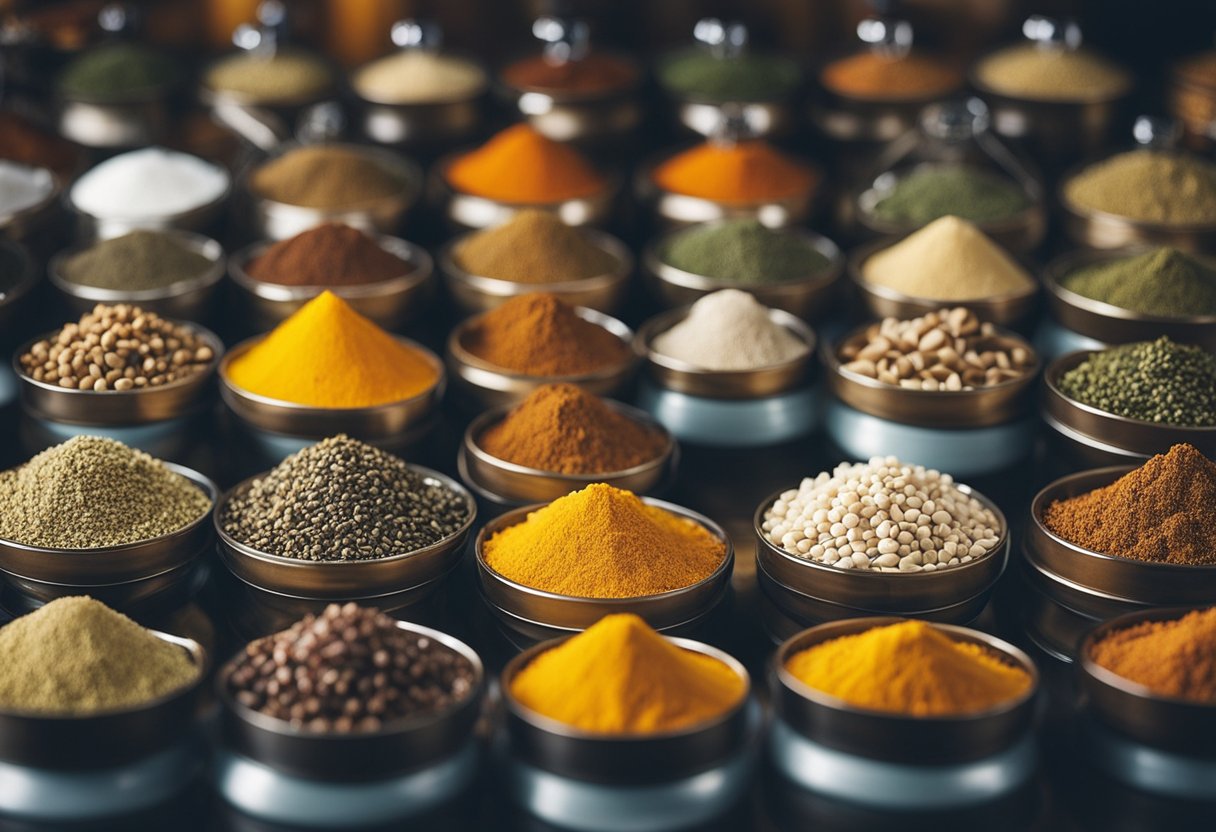
When looking for substitutes for curing salts, there are several places to start. Here are some options:
- Grocery stores: Many grocery stores carry curing salt substitutes such as celery powder or Himalayan pink salt. Look for these items in the spice aisle or with other specialty salts.
- Online retailers: If you can’t find what you need in your local grocery store, consider looking online. There are many online retailers that specialize in spices and seasonings, and they often carry curing salt substitutes.
- Health food stores: Health food stores may also carry curing salt substitutes, such as Himalayan pink salt or Celtic sea salt. These stores may also have other options for nitrate-free curing methods.
- Butcher shops: If you’re looking for a substitute for curing salt specifically for meat, consider checking with your local butcher. They may have recommendations for nitrate-free curing methods or alternatives to traditional curing salts.
It’s important to note that not all substitutes for curing salts are created equal. Some may not be as effective at preserving food, while others may have a different taste or texture.
Be sure to do your research and choose a substitute that will work well for your specific recipe.
In addition, if you’re looking for a nitrate-free alternative to curing salts, be aware that some substitutes may still contain nitrates.
For example, celery powder is often used as a nitrate-free alternative, but it naturally contains nitrates. While these nitrates are considered safe, it’s important to be aware of what you’re using in your food.
Overall, there are many options for finding substitutes for curing salts. Whether you’re looking in your local grocery store or online, be sure to choose a substitute that will work well for your specific needs.
Precautions When Using Substitutes
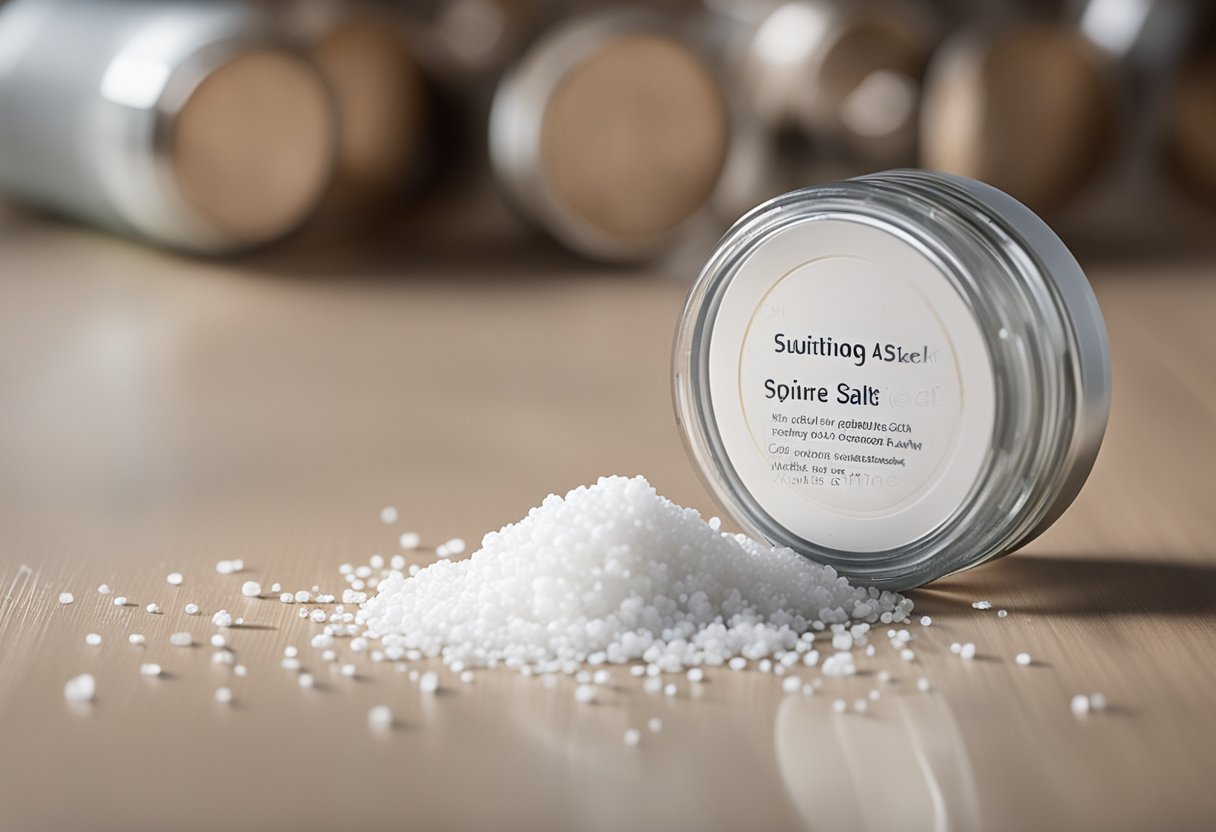
When using substitutes for curing salts, it is important to take certain precautions to ensure that the food is safe to eat and does not spoil quickly. Here are some things to keep in mind:
Preventing Spoilage
One of the main reasons for using curing salts is to prevent spoilage of the food. When using substitutes, it is important to make sure that the food is properly cured and preserved.
This can be done by following the instructions carefully and using the right amount of substitute. Using too little substitute can result in spoilage, while using too much can be harmful to health.
Microbes
Microbes are a major cause of spoilage in food. When using substitutes, it is important to make sure that the food is not contaminated with harmful microbes. This can be done by using clean utensils and surfaces, and by washing and drying the food thoroughly before curing.
Curing Method
The curing method used can also affect the safety and quality of the food. When using substitutes, it is important to use a method that is appropriate for the type of food being cured.
For example, some substitutes may work better for dry-cured meats, while others may be more suitable for wet-cured meats.
Iodine
Some substitutes for curing salts may contain iodine, which can be harmful in large amounts. It is important to check the label carefully and make sure that the substitute does not contain excessive amounts of iodine. If in doubt, it is best to consult a healthcare professional.
In summary, using substitutes for curing salts can be a safe and effective way to preserve food. However, it is important to take certain precautions to prevent spoilage, avoid harmful microbes, use the right curing method, and avoid excessive amounts of iodine.
By following these guidelines, you can enjoy delicious and healthy cured foods without any worries.
Conclusion

In conclusion, there are several substitutes for curing salt that are natural and healthy. While curing salt is commonly used to preserve meat, it contains nitrites that can be harmful in large amounts.
Celery powder is a popular substitute for curing salt that is rich in nitrates, which convert to nitrites during the curing process. Non-iodized sea salt is another alternative that is readily available and can be used in the same amount as curing salt.
Himalayan pink salt is a natural salt that contains trace minerals and can be used as a substitute for curing salt. It has a unique flavor that can enhance the taste of cured meats.
Kosher salt is another option that can be used in place of curing salt, but it does not contain nitrates or nitrites.
Saltpeter, also known as potassium nitrate, is a traditional curing agent that has been used for centuries. However, it is not a natural substitute and can have negative health effects in large amounts.
When choosing a substitute for curing salt, it is important to consider the flavor profile and the desired outcome of the cured meat. It is also important to follow proper curing procedures to ensure food safety.
Overall, there are several natural and healthy substitutes for curing salt that can be used in moderation to preserve meat without the harmful effects of nitrites.
Frequently Asked Questions
What are some alternatives to curing salts?
There are several alternatives to curing salts, including Himalayan pink salt, kosher salt, celery powder, and vinegar. These substitutes can be used in a 1:1 ratio in place of curing salts.
Are there any natural substitutes for curing salts?
Yes, there are natural substitutes for curing salts, including celery powder and Himalayan pink salt. These alternatives are free from harmful chemicals and additives, making them a healthier option for preserving meat.
Can kosher salt be used as a substitute for curing salt?
Yes, kosher salt can be used as a substitute for curing salt. However, it is important to note that kosher salt does not contain nitrates or nitrites, which are the key ingredients in curing salts.
As a result, the meat may not have the same color or flavor as when cured with curing salts.
Where can I find nitrate-free curing salt?
Nitrate-free curing salt can be found at specialty food stores, health food stores, and online retailers. It is important to read the labels carefully and ensure that the product is indeed nitrate-free.
What is the difference between Himalayan salt and curing salt?
Himalayan salt is a natural salt that is mined from the Himalayan mountains. It contains trace amounts of minerals and is often used as a healthier alternative to table salt.
Curing salt, on the other hand, is a mixture of salt and sodium nitrite or sodium nitrate, which is used to preserve meat.
Is celery salt a viable option for curing?
Celery salt is not a viable option for curing as it does not contain enough nitrites or nitrates to properly preserve meat.
However, celery powder can be used as a substitute for curing salt and is a natural alternative that is free from harmful chemicals.







